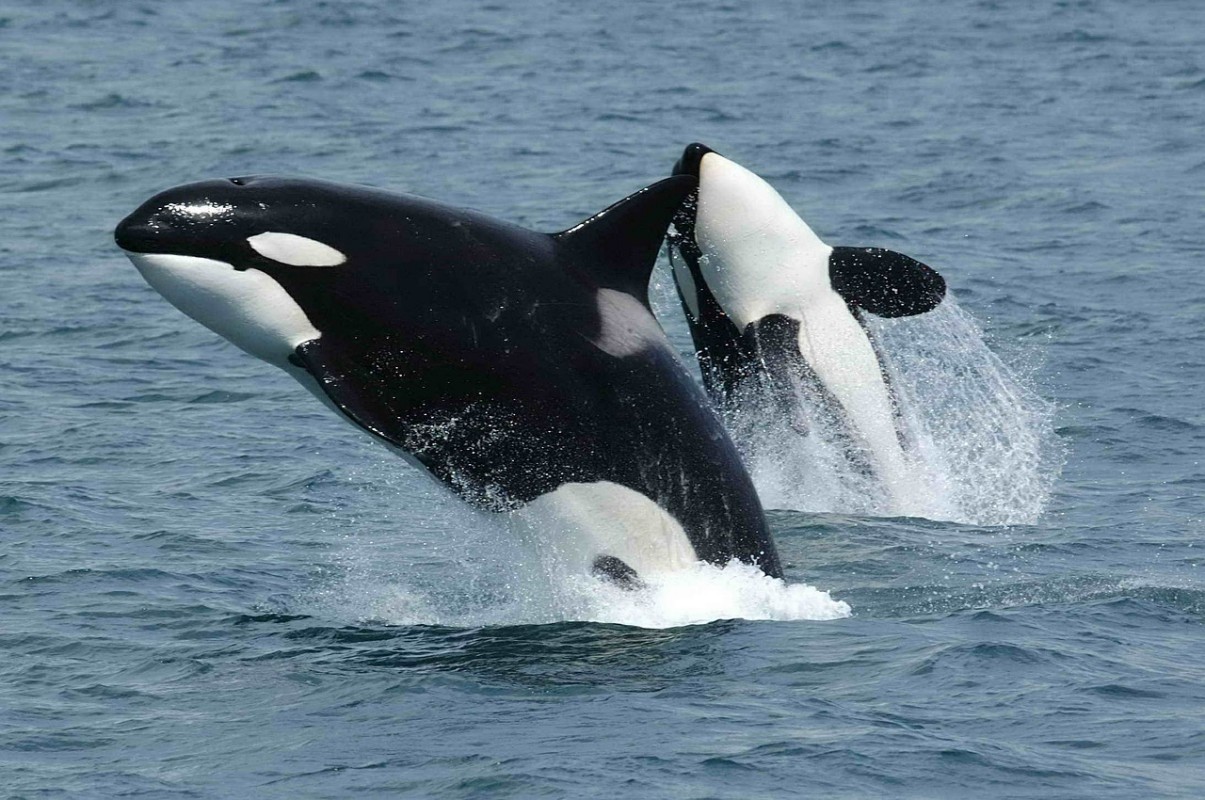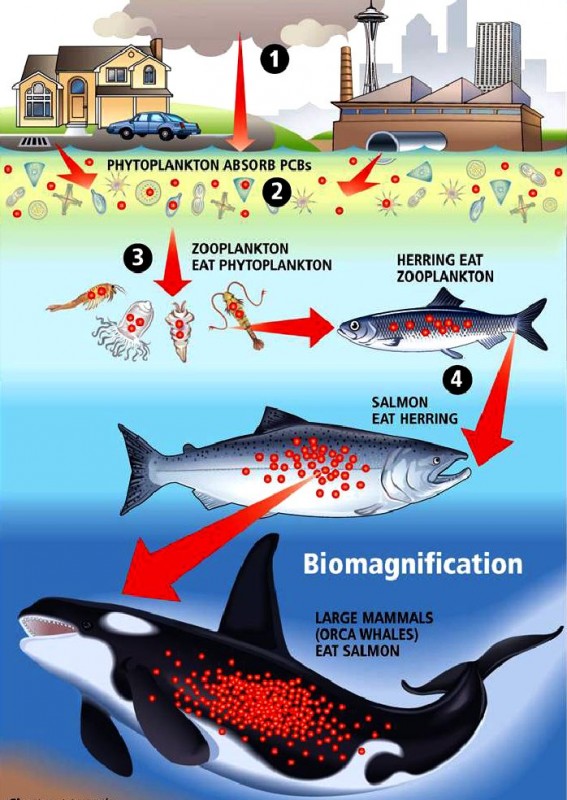 We are all aware of pollution from plastics.
We are all aware of pollution from plastics.
But did you know there is another man-made pollutant that is still lingering in our environment?
Known as PCB (short for PolyChlorinated Biphenyls), they were once very common. According to a new study, these chemicals which were banned 40 years ago are continuing to devastate marine life.
They could be responsible for the disappearance of more than 50% of the orca population before the end of the century.
What Are PCBs?
PCBs are organic compounds that were widely used in pesticides, paints, electrical equipment like refrigerators and televisions, sealants, carbonless copy paper, and more.
They were even sprayed on roads to keep the dust down. From 1920 to 1970, the U.S alone produced more than 1.5 billion pounds of PCBs. Waste from the manufacturing plants entered landfills and dump sites, and made its way into water sources.
Just like plastics, PCBs are incredibly robust and remain in the environment for a very long time. They were found to be highly toxic and carcinogenic (cause cancer), and were banned first in the US and then the European Union by the late 1970s.
However, they have left a mark, with evidence found in one of the deepest points in our oceans - the Mariana Trench where it is believed to have been carried by plastic debris and dead animals sinking to the bottom of the ocean.
How PCB's Poison Orcas
 Smaller animals in the ocean, like krill and plankton, take the PCBs into their bodies as they take in food from the ocean.
Smaller animals in the ocean, like krill and plankton, take the PCBs into their bodies as they take in food from the ocean.
When a fish eats those same krill and plankton, the chemical enters their bodies along with nutrients and energy. But there’s an important difference – one fish has more PCBs in its body than each of those krill and plankton did, since the fish eats lots of them at a time.
So every step up the food chain doesn’t just mean the predators get bigger – the amount of PCBs does too!
This magnification of PCB intake (known as bioaccumulation) is why orca whales are particularly threatened. Orca whales are apex predators, which means that their position in the food chain is the highest.
Unfortunately, that also means the risk from PCBs is the highest for them as well. It certainly doesn’t help that PCB is soluble in fats. Orcas are rich in fat and mother orcas will pass on PCBs through their milk.
PCBs prevent orca whales from reproducing. This is most concerning because orca whales take years to reach maturity. In addition, even populations with mature individuals have calves very rarely. For example, orcas on the west coast of Scotland have not had a calf in 20 years.
According to Alisa Hall, the author of the study, not all is lost. If we can reduce other stresses on the animals arising from habitat loss, noise pollution, and the availability of prey, there is hope that we can save these marine animals. More importantly, there is a lesson here for all of us, to take urgent steps to protect our environment from plastic pollution.
Sources: NYTimes, CNN, NOAA, EPA.gov, Guardian.co.uk








